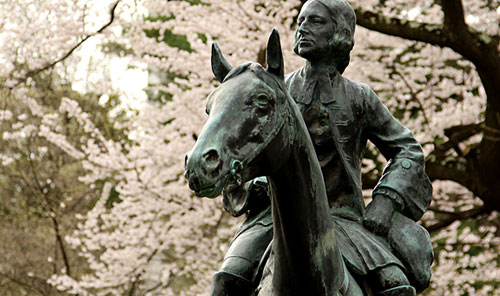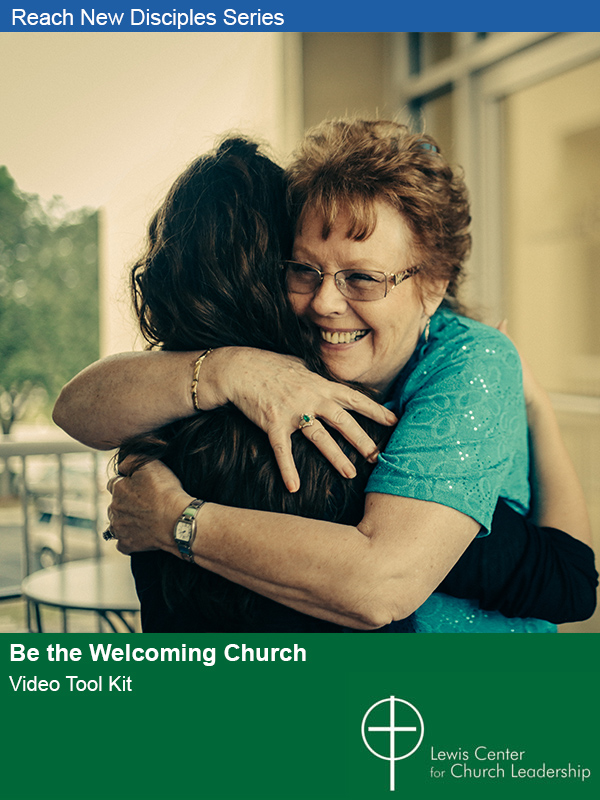Roger Ross, author of the book Meet the Goodpeople, looks to the Wesleyan Revival for examples of effective ways of sharing faith. He says seven methods John Wesley used to reach the unchurched in the 18th Century can be reshaped to reach people today, including prayer, popular music, small groups, and lay empowerment.
As a priest in the Church of England, John Wesley was distraught by the powerlessness of the church to reach the vast majority of British people. God’s spirit created such a holy discontent in Wesley’s heart that he abandoned conventional modes of ministry and experimented with several innovative approaches. To everyone’s surprise, spiritual revival broke out in England and beyond. If you’re like me, you may wonder, “If God could do that then, why not now?”
Seven practices emerged as characteristic of the early Methodist movement.
Be Devoted to Prayer
If you’re like me, you may wonder, “If God could do that then, why not now?”
Wesley rediscovered what the church of his day had forgotten: prayer releases the power of God. He called prayer “the grand means of drawing near to God” and found believing, persistent prayer to be the necessary first step to see God move. He modeled this conviction by devoting at least two hours a day to personal prayer and made fervent prayer a hallmark of the movement.
Go Where the People Are
When the love of Jesus Christ gripped Wesley’s heart, he knew he couldn’t keep it to himself. There had to be some way to reach the vast masses of people who would never darken a church door. Initially, Wesley was convinced the gospel could only be preached in the stained-glass setting of a church building. But with so few people attending church services, he was forced to consider other options. Reluctantly, Wesley began preaching in the open air. He would find a high spot on the edge of a city and speak to whoever would listen. Crowds of three, five, even ten thousand people would gather. Many of them were touched by the spirit of God and awakened to their spiritual state. A revival in England was born largely because Wesley was willing to take the gospel where the people were.
Speak Plain Truth
In Wesley’s day, the Church of England didn’t connect with the real lives of everyday people. Ironically, the ministry of Jesus was just the opposite. When Jesus spoke, “the common people heard him gladly.” Wesley longed to bridge the gap between real faith and real people. Although he was a highly educated Oxford fellow and deeply steeped in the Christian tradition, he refused to parade his scholarship. He chose to speak plain truth for plain people. He intentionally shaped his language so common people could gladly hear the gospel and respond.
Use the Music of the Culture
Gregorian chants in Latin and heavy German music were standard fare in church services in Wesley’s day. Although the words were meaningful, the music was a complete disconnect with the common people. It didn’t speak their heart language. In his travels, Wesley found that pre-Christian people connected most easily with the gospel when it came through their native culture. He encouraged his brother Charles to put gospel words to the popular tunes of the day, and it caught people’s hearts. Speaking in terms people could understand was part one of cracking the cultural code; music that touched the modern day soul was part two.
Place Everyone in a Small Group for Spiritual Growth
As Wesley began outdoor preaching in various sites around England, he soon noticed a troubling pattern. Without intentional support and encouragement, people who had moving, even ecstatic experiences of God while he was preaching would soon fall away from their newly awakened state. To provide responsible spiritual care, Wesley would only preach in venues where spiritually awakened people could be placed in small groups or “classes.” His goal was not to see people have a single encounter with God but to have them experience real, lasting life change through faith in Christ. Such transformation of heart and life happens best when people do life together with a handful of others who become a spiritual family.
Give the Ministry to the Laity
A team member who rides the bench and a Christian who sits in a pew share an eerie similarity – they both watch other people play. Christianity was never designed to be a spectator sport. As the early Methodist movement grew rapidly, Wesley soon took his mother’s advice and allowed laypersons, both men and women, to oversee classes (small groups) and preach in the society meetings (large groups). When he released the energies of the laity, the ministry multiplied even faster.
Use Mass Communication to Get the Word Out
In Wesley’s day, the mass communication tool was the printing press. Wesley wrote numerous sermons, treatises, tracts, and books that were distributed to a wide audience to fuel the movement. Thousands of people who never heard him speak came to know Christ and grow in Christ through his writings. Of course, today the Internet and social media enable anyone with web access to have a personal platform previously unimaginable.
Why Not Now?
The genius of the Wesleyan revival is found in the ways he engaged coldly indifferent people and turned them into warm-hearted disciples who changed the world. We can do that, too. We can recover the seven methods of the early Methodist movement that reached the unchurched masses of that day. If we will reshape these practices for a twenty-first century context and retool receptive individuals, groups, and churches to use them, a new wave of the spirit will be released.
This article is adapted from Roger’s book Meet the Goodpeople: Wesley’s 7 Ways to Share Faith (Abingdon Press, 2015) and used by permission. The book is available through Amazon or Cokesbury.
Related Resources:
- Lessons from Wesley for All Churches by Lovett H. Weems, Jr.
- Taking Church to the Community Resource
- 50 Ways to Welcome New People







